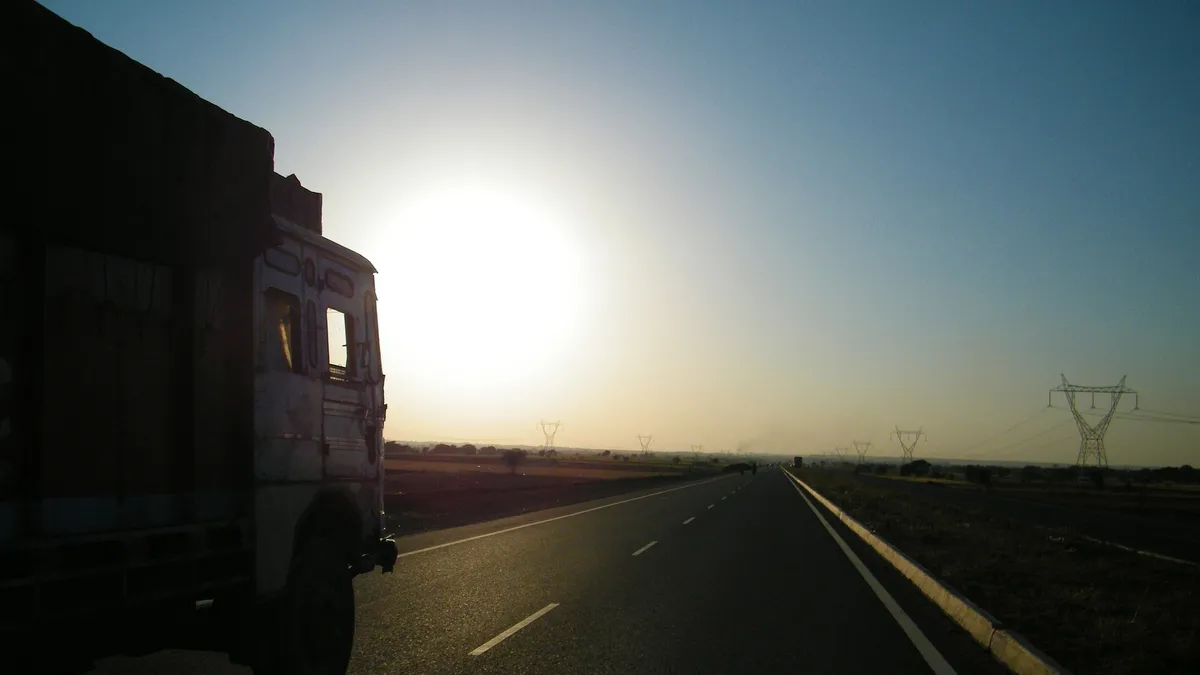Dive Brief:
- Two measures to further study and delay the effects of the electronic logging device (ELD) mandate emerged in the U.S. House of Representatives this week, according to various Overdrive reports.
- The U.S. House Appropriations committee on Tuesday asked the Department of Transportation to study the value of a "full or targeted delay" of the rule. The legislation also provides a compliance extension for livestock haulers, although all other truckers must still comply by December.
- In addition, Rep. Brian Babin (R-TX) introduced the "ELD Extension Act of 2017" to the House, where it was referred to the Transportation and Infrastructure Committee. The proposed bill would delay ELD compliance by two years to December, 2019. Introducing the bill is the first step in a long legislative process.
Dive Insight:
After the Supreme Court refused to reconsider the Owner-Operator Independent Drivers Association's (OOIDA) case against the ELD mandate, the OOIDA pledged to take the fight to Congress. This week, the association is celebrating as different branches of Congress are taking action to further study, or altogether delay, the mandate.
“We thank Rep. Babin for realizing the serious problems associated with implementation that can only be avoided by putting off the mandate,” Todd Spencer, executive vice president of the OOIDA, said in a press release. In fact, the OOIDA has shown an incredible determination to overturn the mandate for over a decade.
The group has been battling its implementation since approximately 2000, when the Federal Motor Carrier Safety Association (FMCSA) made its first concerted effort to limit hours of service via the use of ELDs. By 2015, when the FMCSA proposed its most thorough final rule, the fight seemed finished. Electronic logging devices were to be required on all non-driveaway-towaway trucks made after 2000, in order to improve compliance with federal hours of service regulations.
The reasoning behind the rule is part of a broad legislative effort to reduce highway accidents as a result of fatigue-related accidents. Therefore, the mandate seeks to limit drivers' ability to push beyond a specific timeline, which often leads to exhaustion. And exhaustion, together with speeding, account for a full 34% of all highway crashes, per the FMCSA.
On the drivers' side, however, are valid concerns about privacy, improper cost analyses and concerns over harassment. They also feel that the ELD imposes costly technology upon them, and favors large carriers, many of which support the mandate. That was the rhetoric used to fight the rule in court, at least, but recent events suggest the oppositions' message has changed.
“The agency has failed to answer important questions from Congress and industry stakeholders about this mandate,” said Spencer. “This includes issues related to enforcement, connectivity, data transfers, cybersecurity vulnerabilities, and many other legitimate real world concerns,” said Spencer.
Such concerns are more palatable to a Congressional audience, concerned more with an economic impact of regulation than safety. It also more closely mirrors business concerns with regulation, rather than safety initiatives, which fits the Republican Party's agenda.
No matter which way the wind finally blows, carriers and fleet managers should not yet hedge their bets on a successful challenge to the ELD mandate. The legislative process is notoriously slow, and introducing a bill or commissioning a report are minor, albeit the first steps. However, the news shows the opposition to the rule is very much alive, and organizations like the OOIDA will keep pushing to minimize the costs of compliance.













